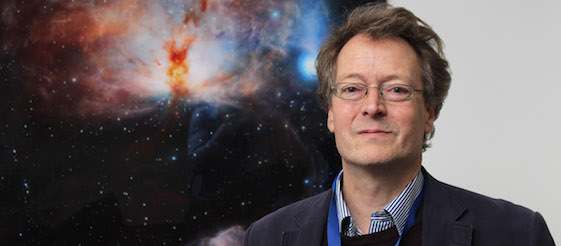
Hear more from the staff leading our MSc programmes. We catch up with Dr Will Sutherland, Director of the MSc in Astrophysics at QMUL.
Could you tell us what is unique about the Astrophysics MSc?
The QM Astrophysics MSc is one of very few taught Masters-level courses in the UK. It provides excellent breadth across most topics in modern astronomy, and the dissertation gives students a good opportunity to get a taste of doing their own research project.
Why are you passionate about teaching your subject?
There has been great progress in cosmology in the past 20 years, but there are a good number of big, unanswered questions. I really enjoy communicating these recent discoveries, and hope to inspire the next generation of astronomers to work on these open questions.
What is it like working at QMUL?
I enjoy the friendly atmosphere of interactions between staff and students. The campus is attractive and self-contained and I find it interesting working in a diverse area near central London.
What are your research interests?
Searches for very high redshift quasars; large-scale galaxy clustering and baryon acoustic oscillations, with implications for dark matter and dark energy.
What inspires you?
The opportunity to make real progress on fundamental questions about the history and composition of the Universe as a whole. The high-redshift quasars give us a glimpse of "first light", some of the earliest large galaxies at only 0.8 billion years after the Big Bang.
Surveys of baryon acoustic oscillations can measure the size of the universe as a function of time, thus probing the nature of the mysterious dark energy that contributes 70 percent of the cosmic energy budget.
